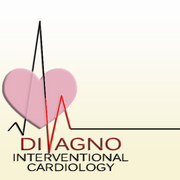An Introduction to Structural Heart Disease

The term structural heart disease encompasses any cardiac disease that involves the tissues and valves of the heart; in essence, any condition that affects the structure and health of the heart. People can be born with a structural heart disease, or they can acquire one as a result of an injury or damage. Here’s what you need to know about this cardiac issue.
Causes & Symptoms
If a structural heart disease is present at birth, it’s a congenital problem. Structural issues that develop at later points in life can have any number of causes. Some common ones include atherosclerosis, which is a narrowing or clogging of the heart arteries; high blood pressure, which overtaxes the heart by forcing the muscle to work harder; and heart valve dysfunction, which is when the valves don't open and close as they should. In some cases, long-term drug or alcohol abuse can weaken the heart walls and cause a structural cardiac disease.
Symptoms of heart disease include chest pain, shortness of breath, fatigue, and an irregular heartbeat. Strokes or mini-strokes are also common.
Risk Factors
 Those with high blood pressure or high cholesterol levels are at an increased risk of developing a structural heart disease. Lack of exercise, poorly managed stress levels, smoking, and chronic alcohol or drug use are also contributing factors.
Those with high blood pressure or high cholesterol levels are at an increased risk of developing a structural heart disease. Lack of exercise, poorly managed stress levels, smoking, and chronic alcohol or drug use are also contributing factors.
To counteract any risks, consult your heart doctor for advice about taking blood pressure- and cholesterol-lowering medications. Eat a healthy diet rich in green, leafy vegetables and omega-3 fatty acids. Do a minimum of 30 minutes of cardio exercise, at least five days a week. If you smoke, make a plan to quit. If you drink more than a few alcoholic beverages a week, consider cutting back, quitting entirely, or switching to more heart-healthy spirits, like red wine.
Treatment
There are a variety of treatments that may be helpful in addressing these types of cardiac issues. During an aortic valve replacement, the doctor inserts a new valve inside the diseased one. Mitral valve repair can remedy a leaky valve by stopping the leak with a clip. Both of these procedures are minimally invasive. In more severe cases, open-heart surgery may be the most effective option.
If you have concerns about a structural heart disease, contact the cardiologists at DiVagno Interventional Cardiology, MD, PA. Dr. Leonard DiVagno and his team have been serving Bergen County, NJ, for more than two decades. They offer a variety of treatment options and care plans for those dealing with cardiac issues. Schedule an appointment today by calling (201) 845-3535. Visit their website to learn more.
About the Business


